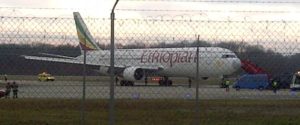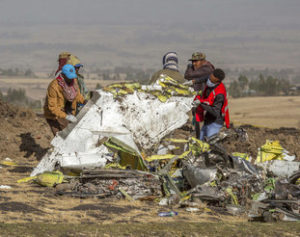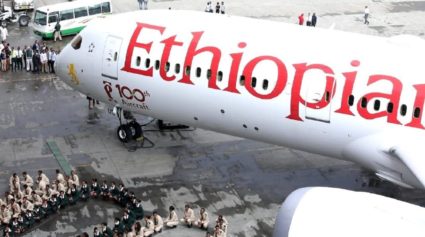
It wasn’t clear what kind of persecution the 30-year-old co-pilot faced in Ethiopia, one of the continent’s fastest growing economies. The 202 passengers on the plane were not even aware it had been hijacked until it landed in Geneva, authorities said.
“Everybody was safe from beginning to end — no problem,” police spokesman, Eric Grandjean, said in Geneva.
Geneva airport chief executive Robert Deillon explained that the co-pilot took control of the plane when the pilot left the cockpit to use the restroom.
“The pilot went to the toilet and he (the co-pilot) locked himself in the cockpit,” Deillon said.
Authorities said the plane was already in Italian airspace when the co-pilot took the controls. After locking the cockpit door, he first said he needed fuel, then he activated a transponder to signal that the plane was being hijacked. The Italians sent fighter jets to escort the aircraft out of Italian airspace. It landed in Geneva at 6:02 a.m. After the co-pilot turned off the engines, he opened the cockpit window and lowered himself to the tarmac with a rope, officials said.
When he ran toward security officers, he identified himself as the hijacker, declared that he was in danger in Ethiopia and requested asylum.
Geneva prosecutor Olivier Jornot said the co-pilot would be charged with taking hostages, a crime punishable by up to 20 years in prison, according to The Associated Press.
Jornot also said the pilot’s chances of winning asylum were slim.
“Technically, there is no connection between asylum and the fact he committed a crime to come here,” Jornot told the AP. “But I think his chances are not very high.”


